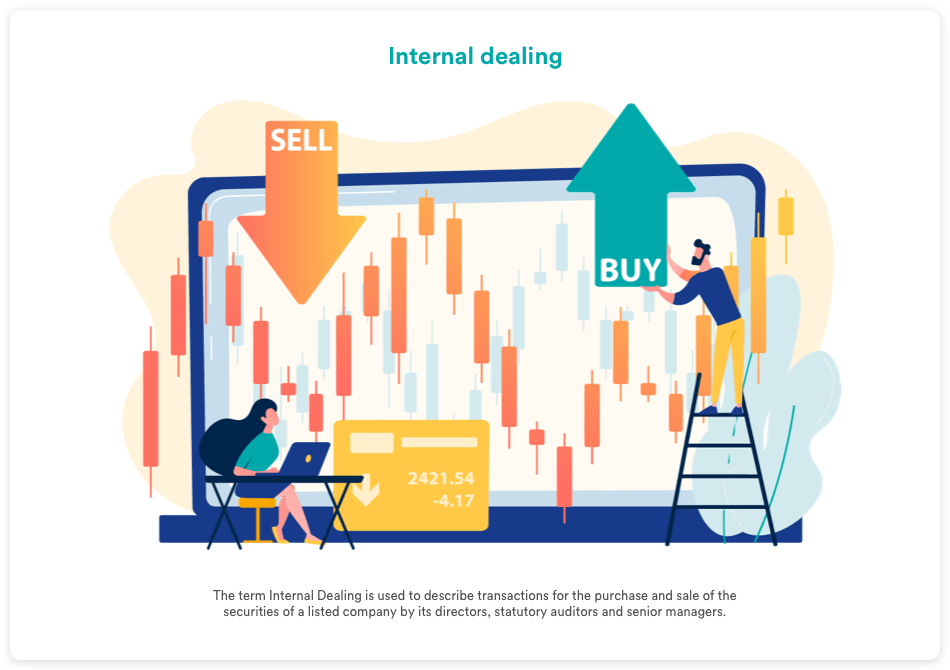Internal dealing
Words to understand
- Group
- Media
- Words to understand
- Internal dealing
Internal dealing

The term Internal Dealing is used to describe transactions for the purchase and sale of the securities of a listed company by its directors, statutory auditors and senior managers. Given the particularly important position these persons have within the company, purchase and sale transactions involving company securities may be of particular informative value for the market.
For example, if the senior managers carry out transactions to buy the company's securities, this gives to the market a general sign of confidence in the company's outlook. The opposite is true, in the case of sales transactions.
For this very reason, by law persons in the above positions have the obligation of promptly disclosing to the market any purchase/sale transactions carried out on the securities of their company. (article 114, paragraph 7 of the Consolidated Law on Finance and articles 152 sexties et sequitur of Consob Issuers' Regulation 11971/99). Moreover, anyone who controls at least 10% of the share capital of a listed group is required to disclose its transactions in the securities in question. Internal dealing operations are assumed to be carried out in compliance with the applicable law and on the basis of the information available to the market.

When buying securities, the assumption is that the price will go up and the buyer will make a capital gain. Several US statistical studies confirm the positive trend of actions after important internal dealing transactions: academic research has shown that companies with significant purchases of shares by directors tend to over-perform market indices.
Directors are those who have more information about the company they manage and the competitive framework in which the company operates; they know their products and those of the competition well and therefore their internal dealings should be examined with particular attention.
However, this cannot be generalised because the positive outlook of a company, the purchase of the security by an insider and a clear investment opportunity for the potential investor do not necessarily correspond.
The fact that the insider is a senior manager of the company does not necessarily imply that he/she is a good investor: he/she may focus excessively on the company's business outlook, neglecting the overvaluation of the security, or his/her area of expertise not be in the financial field.
This information should therefore be seriously taken into account but at the same time you should also have the ability to independently assess the company's overall situation.
The amount at which the shares are purchased with respect the income/equity of the buyer should also be assessed, also verifying whether more than one top manager has purchased the security.
Let us say that a CEO of a company with an income of a few million Euros buys securities for an amount equal to 10 thousand Euros; obviously this purchase will not be high with respect to his or her assets and the prudent investor would not consider this internal dealing with particular interest.
If, on the other hand, internal dealings are made by several top managers for high amounts, it is obvious that the information is of different importance for the investor: it unlikely that all top managers would risk a part of their assets by misinterpreting the company information they have.
Fonti: https://www.borsaitaliana.it/notizie/sotto-la-lente/internaldealing.htm e https://www.affaridiborsa.com/articoli/108-internal-dealing-uno-strumento-utile-per-l-investimento.html
